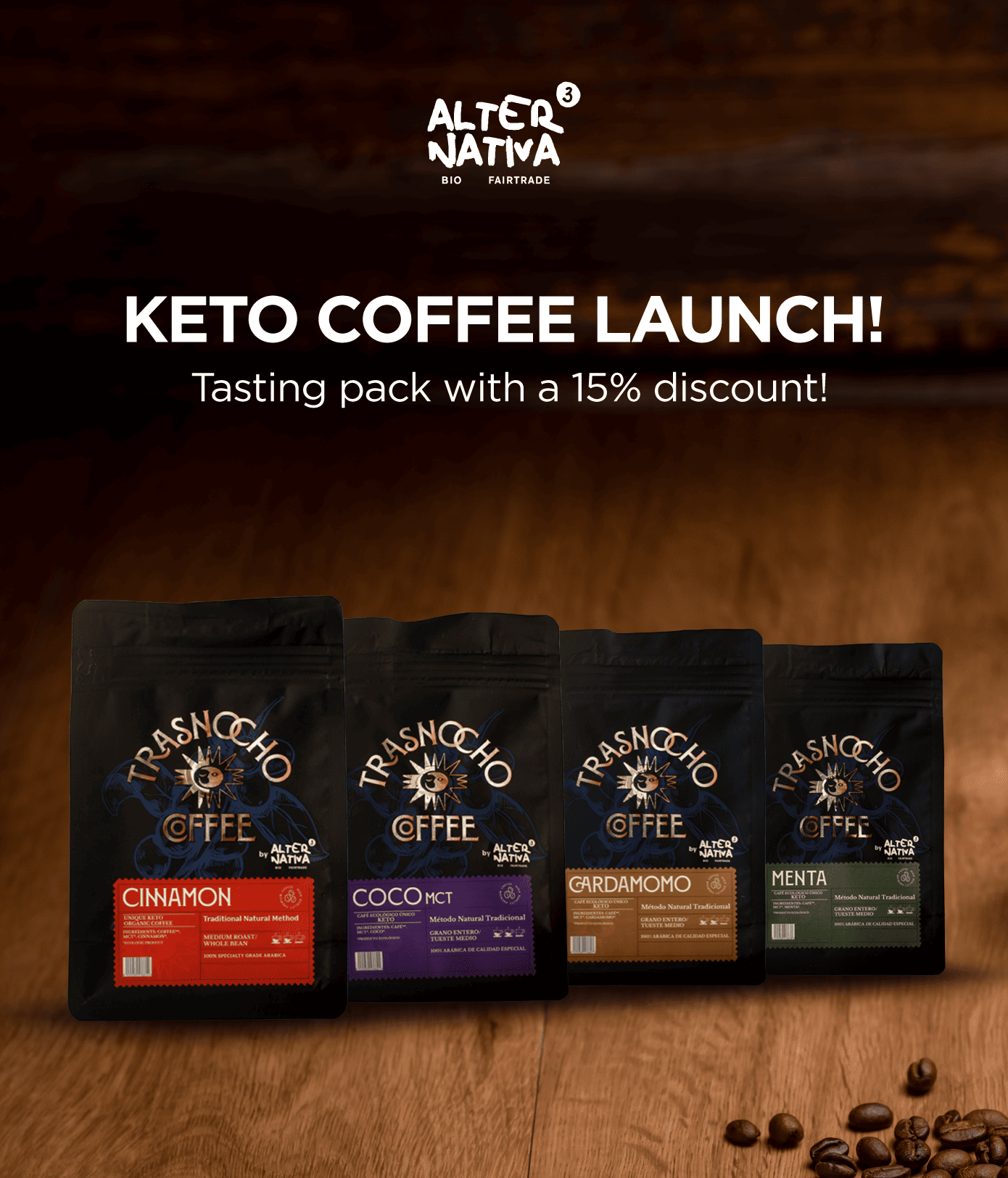The first Saturday in July is International Day of Cooperatives. At AlterNativa3 we experience it as an opportunity to make visible the transformative power of Fair Trade cooperatives and their impact on coffee, cocoa and sugar producing communities in the Global South.
Why do we celebrate the International Day of Cooperatives?
This day was declared by the UN and promoted by the International Co-operative Alliance (ICA) to recognise the social, economic and cultural importance of co-operatives throughout the world. Today, more than one billion people are part of a cooperative.
Co-operatives: An engine of global transformation
Cooperatives are neither an exception nor a marginal alternative. They are a key tool for sustainable development, redistribution of wealth and building more humane economies.
In contrast to business models that focus exclusively on economic profit, cooperativism puts people at the centre, prioritising internal democracy, equity and respect for the environment.
What does it mean to be a Fair Trade cooperative?
It's not just about producing and selling. Fair Trade cooperatives transform economic relations at their roots.
Much more than a form of organisation
A Fairtrade cooperative does much more than produce coffee, cocoa or sugar. It is a living network of collaboration between farmers who choose to join together to have a voice, improve their living conditions and ensure a dignified future for their communities. In contexts of the Global South, where inequalities are most pronounced, these cooperatives offer a real path to autonomy, resilience and justice.
The power to decide collectively
In these organisations, every member has a voice and a vote. Minimum prices are jointly defined, Fairtrade premiums are managed and community investments such as schools, health centres or improvements in agricultural infrastructure are planned. Cooperation is not just a means: it is the purpose in itself.
Cooperatives AlterNativa3 works with
Since its beginnings, AlterNativa3 has been firmly committed to collaborating with coffee, cocoa and sugar cooperatives that work under Fair Trade and organic farming criteria.
Organic production and democratic organisation
In countries such as Colombia, Paraguay, India and the Dominican Republic, cooperatives grow crops without chemicals, protect biodiversity and value the traditional knowledge of their communities. These cooperatives work democratically and guarantee fair working conditions for their members.
Women's leadership and social transformation
Many of AlterNativa3's partner cooperatives are led by women. They do not just farm: they also manage, train, lead and make strategic decisions within their communities.
This model also implies advancing towards greater gender equality in areas where women have historically been invisible in agricultural work and excluded from spaces of power.
Why does this model matter today more than ever?
In a world marked by the climate crisis, increasing economic concentration and the casualisation of work, Fair Trade cooperatives are a real and urgent response. Faced with a global system that leaves millions of producers behind, cooperatives propose a model based on solidarity, resilience and regeneration.
Cooperatives: A regenerative alternative
Cooperatives are committed to a regenerative model. In this way, the land is cared for through sustainable agricultural practices, resources are redistributed fairly and decent conditions are guaranteed for those who produce.
It is not just about changing the rules of the game, but about building a completely new game, based on collaboration and mutual respect.
Key to the Sustainable Development Goals
The Sustainable Development Goals (SDGs) are a global agenda adopted by all UN member states in 2015. They set out 17 goals to eradicate poverty, protect the planet and ensure prosperity for all people by 2030. Each goal has concrete targets that guide the actions of governments, businesses and civil society.
Fair Trade cooperatives contribute directly to several of these SDGs, demonstrating that another economic model is not only possible, but necessary:
SDG 5: Gender equality, by empowering women producers and promoting their leadership within the cooperatives.
SDG 8: Decent work and economic growth by ensuring fair wages, labour rights and safe conditions.
SDG 12: Responsible production and consumption, offering ethical, sustainable and traceable products, produced with respect for the environment and people.
Investing in the co-operative model is a commitment to a fairer, more inclusive and sustainable future. It is to contribute to the fulfilment of a global agenda that seeks to transform the world without leaving anyone behind.
How can you be part of the change?
Every time you choose Fairtrade coffee, cocoa or sugar you are supporting a global network of people working in cooperation, not competition. You are strengthening local economies, respecting the environment and defending human rights.
Connect with our producers
We invite you to learn more about the cooperatives with which AlterNativa3 works. Behind every product there is a story, a community and a real alternative to the dominant model.
It is not that another kind of economy is possible, it is that it is already underway.


